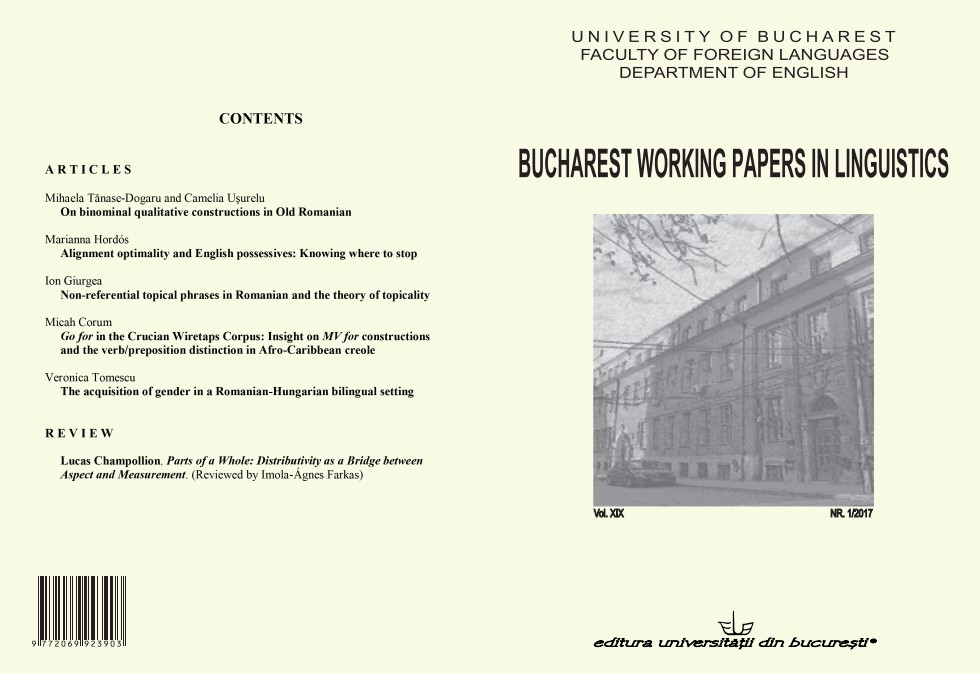THE ACQUISITION OF GENDER IN A ROMANIAN-HUNGARIAN BILINGUAL SETTING
THE ACQUISITION OF GENDER IN A ROMANIAN-HUNGARIAN BILINGUAL SETTING
Author(s): Veronica TomescuSubject(s): Language and Literature Studies, Theoretical Linguistics, Syntax
Published by: Editura Universităţii din Bucureşti
Keywords: gender; Romanian-Hungarian bilinguals; phonological and semantic transparency; processing difficulties;
Summary/Abstract: This paper analyses the acquisition of Romanian gender agreement in a Romanian-Hungarian bilingual setting, based on two longitudinal corpora and a corpus of narratives, with a view to identifying the causes that lead to the vulnerability of the gender feature in this particular language combination. The fact that Hungarian is a genderless language causes some delay in the acquisition of Romanian gender with bilinguals. While phonological and semantic transparency do not seem to have had much influence, it has been found that agreement at a distance represents an obstacle, probably due to processing difficulties inherent to bilingual language acquisition. The two main facilitating factors have been found to be adjacency to the noun and the presence of the definite and indefinite articles.
Journal: Bucharest Working Papers in Linguistics
- Issue Year: 19/2017
- Issue No: 1
- Page Range: 75-103
- Page Count: 27
- Language: English, Hungarian

